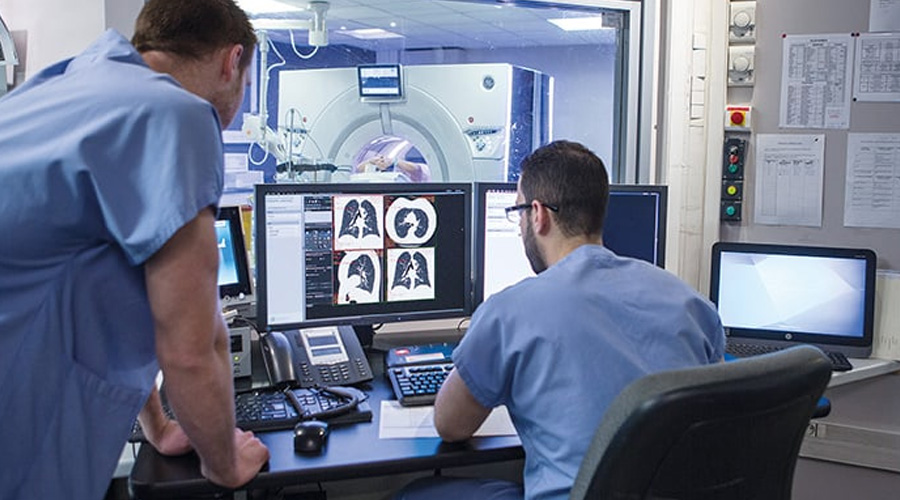
AI-Powered Algorithms Revolutionize Medical DiagnosisAI-Powered Algorithms Revolutionize Medical Diagnosis Artificial intelligence (AI) is rapidly transforming the healthcare landscape, and its impact on medical diagnosis is nothing short of revolutionary. AI-powered algorithms are now enabling healthcare professionals to diagnose conditions more accurately, quickly, and efficiently than ever before. Improved Accuracy: AI algorithms can process vast amounts of medical data, including patient records, imaging scans, and lab test results. By leveraging sophisticated machine learning techniques, these algorithms can identify patterns and abnormalities that may be missed by human doctors. Studies have shown that algorithms can match or even surpass the accuracy of expert radiologists in diagnosing conditions such as cancer, cardiovascular disease, and eye disorders. Faster Diagnosis: AI algorithms can analyze patient data in real-time, providing diagnoses much faster than traditional methods. This can be crucial in emergency situations or when timely treatment is essential. For example, AI algorithms have been developed to rapidly detect sepsis, a life-threatening infection, and to identify potential heart attacks within minutes of a patient’s admission to the hospital. Increased Efficiency: AI-powered algorithms can automate many aspects of the diagnostic process, freeing up healthcare professionals to focus on other tasks. This increased efficiency can lead to shorter wait times for patients and allow doctors to spend more time providing personalized care. For instance, algorithms can automatically analyze mammograms for signs of breast cancer, reducing the time and effort required for human radiologists. Personalized Medicine: AI algorithms can personalize medical diagnosis by taking into account individual patient characteristics such as age, medical history, and lifestyle. This allows healthcare professionals to tailor treatment plans to each patient’s unique needs. For example, AI algorithms have been used to identify patients with a high risk of developing Type 2 diabetes, enabling early intervention and prevention strategies. Remote Diagnosis: AI-powered algorithms can be deployed on mobile devices and wearable technology, allowing for remote medical diagnosis. This is particularly beneficial for patients in rural or underserved areas who may not have access to a healthcare facility. Algorithms can analyze data from sensors, such as those measuring heart rate, blood glucose, and activity levels, to provide real-time monitoring and early detection of potential health issues. Challenges and Future Directions: While AI-powered algorithms hold immense promise for revolutionizing medical diagnosis, there are still challenges to overcome. These include ensuring data privacy, addressing potential biases in algorithms, and obtaining regulatory approval for clinical use. Despite these challenges, the future of AI-powered medical diagnosis looks bright. As AI algorithms become more sophisticated and widely adopted, they will continue to improve the accuracy, speed, efficiency, and personalization of healthcare diagnostics, ultimately leading to better outcomes for patients worldwide.
Posted inNews